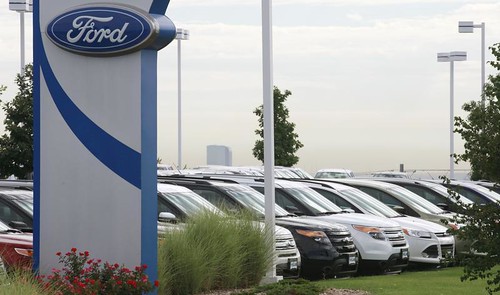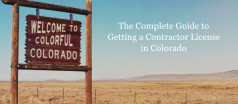Tips on how to launch a car dealership in Colorado
The National Auto Dealers Association (NADA) reveals some very encouraging statistics about car dealerships in Colorado. This year’s state-of-the-industry report shows that the average car dealership in Colorado grossed $47,833 in sales – much higher than the $38,358 US average. Car sales accounted for 16.2% of total retail sales (with a national average of 14.9%) and total new vehicle registration has also seen a tremendous increase – from 155,000+ in 2009 to 227,000+ in 2012.
Opening a car dealership in Colorado can be lengthy and sometimes confusing, due to a number of regulatory requirements. To make your life easier, here’s an outline of the most important steps, together with instructions on how to obtain an auto dealer bond.

Car dealer definition and application requirements
The State of Colorado defines car dealers as people who wish to profit by selling three or more motor vehicles in a 12-month period. There are four types of auto dealer license you can obtain: used-car dealer, new-car dealer, wholesaler and wholesale auctioneer. As the names imply, the first two deal cars on retail prices, whereas the second two can only trade with other auto dealers and cannot sell vehicles to the general public. Dealer licenses are issued by the Colorado Motor Vehicle Dealer Board (MVDB) and regulations are typically enforced by the Auto Industry Division (AID).
A great deal of paperwork is involved but all of it is conveniently provided on the Department of Revenue’s website. You need to have an MVDB-approved business location, go through a background check and pass a mastery exam with a 100% score.
In addition, a lot of the paperwork concerns your financial situation as Colorado is pretty stringent about it. It’s one of the few states that requires keeping a minimum net worth of $50,000. It also has one of the highest surety bonds requirements – $50,000 for all types of auto dealers.
Auto Dealer Bonds

Auto dealer bonds are a type of commercial surety bonds that all car dealers need in order to obtain or renew their license. You can see that same requirement under different names, such as a DMV bond or an MVD bond.
Auto dealer bonds are not to be confused with insurance. Insurances protect your property, and thus – your business. Auto dealer bonds are a state requirement that legally binds you to acquaint yourself with state laws and regulations concerning auto trade and operate according to them. They also protect potential customers against unethical practices on your part.
Auto dealer bonds are underwritten by surety bonds companies. When they put their signature on an auto dealer bond they guarantee that you will not breach any of the conditions of the bond. In case of a breach, a claim is triggered, which means a legal obligation (both yours and that of the surety) to restore all losses set out in the claim.
Costs
Auto dealer bonds are calculated as an annual premium – a small percentage of the total bond amount. The most important factors in the calculation of your premium are financial statements and personal credit score. Sureties always assume a 0% loss ratio, so financial standing and your potential of triggering claims are strictly evaluated.
If your credit score and financial state are not severely compromised, your premium will be 1% – 5% of the $50,000 bond per year, for Colorado licenses need to be renewed annually.
If you have a credit score of 650 or below you are considered a high-risk applicant.
This will increase your annual premium from 5% to 15% of the bond and may sometimes require a collateral. As your credit score and financial statements improve so will your premiums. Keep in mind, though, that the State of Colorado will not let anyone with a score lower than 600 get an auto dealer license.
To get an exact bond quote, complete the online application form below. It’s free and there are no obligations.
-
1Get a FREE Bond QuoteInstant ballpark estimateStart Your Application
-
2Tell us about your businesspowered by

-
3Get your FREE quote today!



